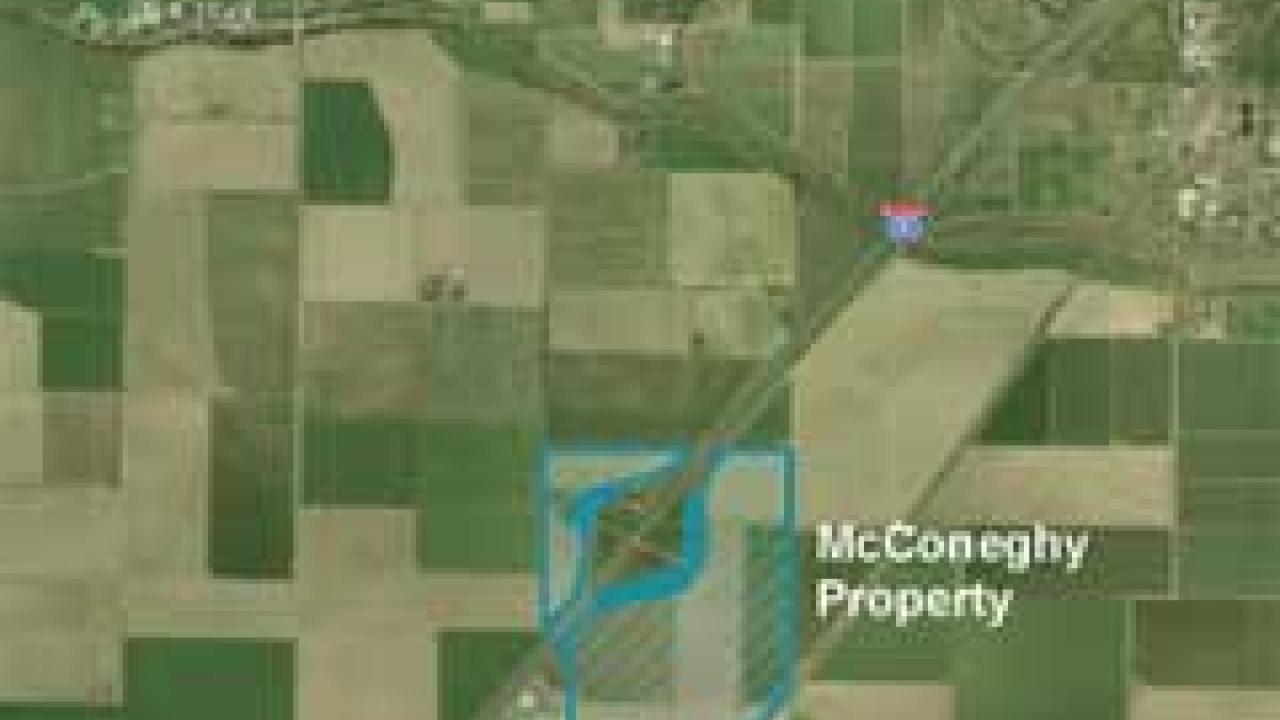It takes a village to save a farm. Two cities, a county, a land trust, a university, the state of California and the federal government have joined forces to preserve agricultural land.
The consortium on Tuesday announced a $2.2 million grant from the state Department of Conservation to preserve 300 acres of land between Davis and Dixon. The grant completes a $3.7 million funding package to acquire a permanent agricultural conservation easement on land surrounding the Kidwell Road interchange on Interstate 80 in northeastern Solano County.
The partner agencies include the cities of Davis and Dixon, Solano County, Solano Land Trust, UC Davis, California Department of Conservation, and the United States Department of Agriculture.
"This is a legacy decision," said Davis Mayor Ruth Asmundson. "It is the first major step toward creation of a permanent agricultural and open space buffer between the cities of Davis and Dixon."
"It is important that we maintain the distinctive characters of our respective communities, and sharing a buffer allows us to still retain a connection," said Dixon Mayor Mary Ann Courville. "This funding serves that goal as well as protecting viable agriculture land from urban encroachment."
The seeds of this idea were planted in 1999 when the cities of Davis and Dixon adopted a joint resolution declaring the intent to establish an open-space agricultural and natural habitat buffer between the cities. The opportunity to realize this goal came a year later, when UC Davis began the process of updating its Long Range Development Plan (LRDP), which guides development decisions on the campus. The campus acquired options to purchase several tracts of agricultural land, including property owned by John and Jean McConeghy on either side of Interstate 80 surrounding the Kidwell Road interchange.
With completion of the LRDP in November of 2003, the campus determined that it did not need the McConeghy property for university agricultural uses. The university then initiated discussions with the other partner agencies about the possibility of placing an agricultural preservation easement on the property, preventing the land from being developed for urban use.
"We consciously decided to grow in a compact manner near the core campus, but also identified strategic areas where we might be able to either acquire additional land for campus agricultural use, or partner on this type of project," said UC Davis Chancellor Larry Vanderhoef. "We are delighted to facilitate the preservation of this land in partnership with our neighbors."
"The farm has been in our family for many years," said current land owner Jean Eggert McConeghy. "I didn't want to sell to commercial developers. So we asked the university first and they took the option. My father farmed this land before there was irrigation. The Eggert family is happy it will always be a farm."
"We share Jean's excitement in being able to preserve some of the finest agricultural soil in the world," said Jim Ball, executive director of the Solano Land Trust, a nonprofit organization dedicated to preserving agricultural and open space land in Solano County. "The Kidwell Road interchange, so close to urban areas, is the last undeveloped interchange in Solano County, which creates substantial speculative development pressure. This project will limit speculation in this important corridor between Dixon and Davis."
Of the $3.7 million cost of the easement, the largest portion will come from the grant of $2.2 million from the California Department of Conservation. The U.S. Department of Agriculture has committed to a grant of $720,000; the city of Davis $500,000; the city of Dixon $150,000, and UC Davis $77,500.
The state and federal support comes from grant programs specifically intended to fund agricultural easements. Funding from the city of Davis comes from agricultural mitigation fees and proceeds of Measure O, a parcel tax approved by city voters in 2000 for the purpose of acquiring agricultural and open-space land within the city's planning area.
The city of Dixon's share will be funded by mitigation fees imposed on city development projects that convert agricultural land to urban use. UC Davis' contribution is in the form of option payments made since 2000, portions of which are applicable to the purchase price.
Staff members of the partner agencies will be meeting soon to finalize details of the transaction. The transaction is expected to be completed by the end of this year.
Additional media contacts:
California Department of Conservation: Chuck Tyson, manager, California Farmland Conservancy Program, (916) 324-0862, ctyson@consrv.ca.gov
U.S. Department of Agriculture Natural Resources Conservation Service: Jim Kocsis, California Farm and Ranch Lands Protection Program manager, (530) 792-5605, jim.kocsis@ca.usda.gov
City of Davis: Mitch Sears, open space coordinator, (530) 757-5626, msears@ci.davis.ca.us
City of Dixon: Warren Salmons, city manager, (707) 678-7000, wsalmons@ci.dixon.ca.us
Solano County: Harry Englebright, principal planner, (707) 421-6767, henglebright@solanocounty.com
Solano Land Trust: Jim Ball, executive director, (707) 432-0150, Ext. 102, jball@solanolandtrust.org
Media Resources
Karl Mohr, UC Davis Resource Management and Planning, (530) 754-9617, kfmohr@ucdavis.edu
